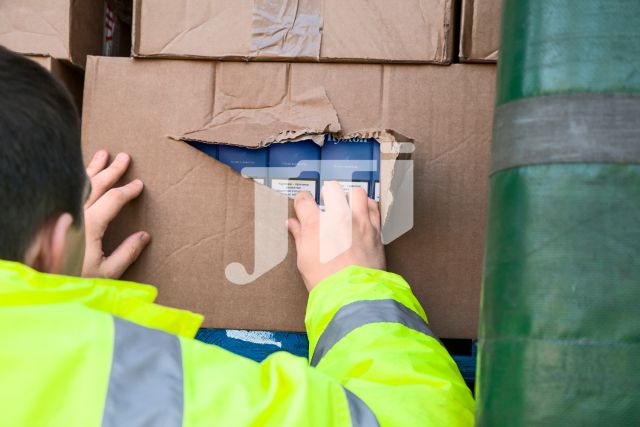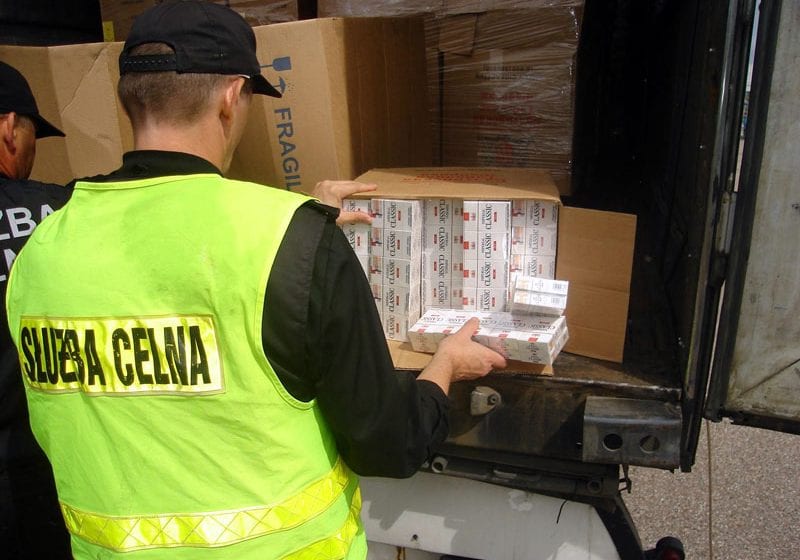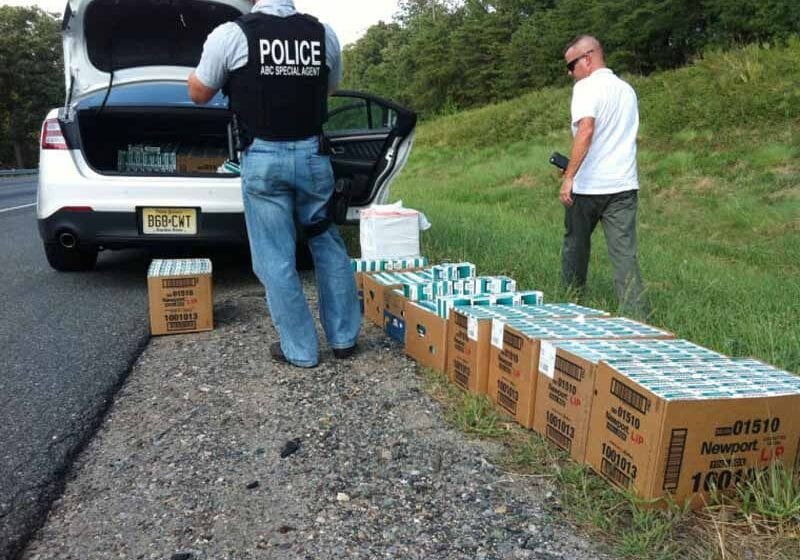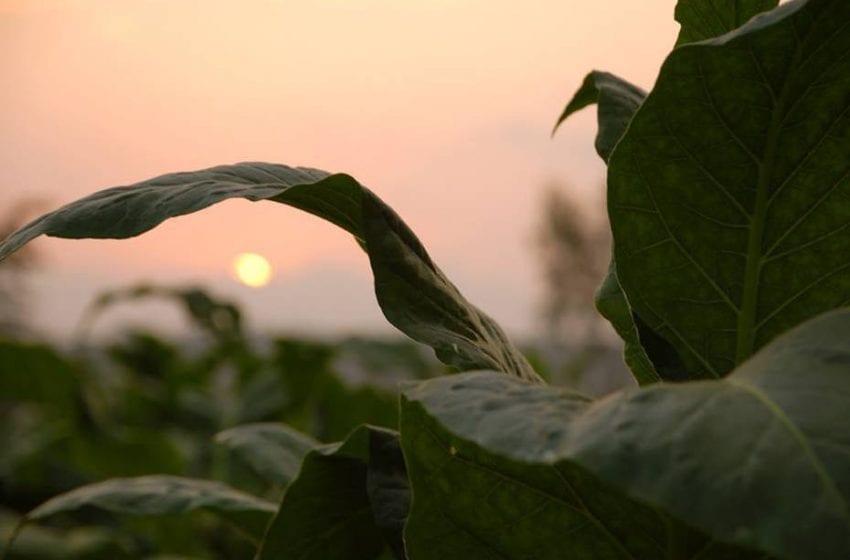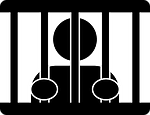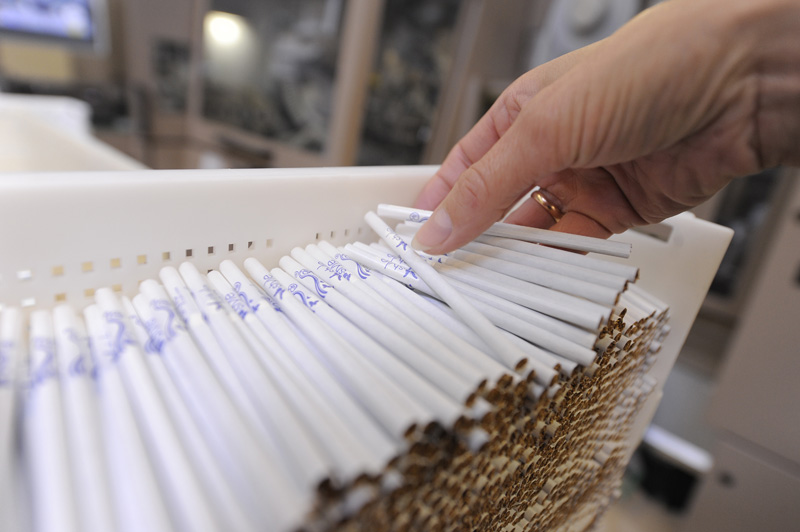The consumption of illicit cigarettes in Thailand more than doubled between the fourth quarter of 2016 and the fourth quarter of 2017, according to a story in The Nation citing the results of a study conducted on behalf of Philip Morris (Thailand).
The increase was said to have implied an annual cost to the country of at least Bt3.6 billion in ‘lost’ tax revenue.
The study, conducted by Nielsen, showed that non-domestic cigarettes, or cigarettes without a Thai tax stamp, captured 6.6 percent of the market in Q4 2017, up from 2.9 percent in Q4 2016.
The study of 10,000 discarded cigarette packs found the problem was most widespread in the south of the country, with the provincial incidence at 76.6 percent in Satun, 67 percent in Songkhla, and 40 percent in Patthalung, said Pongsathorn Ansusinha, PMT’s director of corporate affairs.
Two cigarette brands made up about half of the non-domestic packs, neither of which was registered with the Excise Department.
Pongsathorn said that after the excise tax reform in September 2017, PMT had expected a significant reduction in licit cigarette consumption because some smokers could no longer afford to buy licit cigarettes. They would either quit smoking or turn to the roll-your-own tobacco or illicit cigarettes.
“By using the 6.6 percent rate, we estimate the consumption of non-tax-paid cigarettes in Thailand could reach about 100 million packs,” he said. “This could mean a loss of excise revenue of at least Bt3.6 billion per year, assuming excise tax of Bt36 per pack in 2018.”
And Pongsathorn warned that the loss could rise to as much as Bt5 billion a year by 2020 because the excise burden was set to rise again in October 2019.
Category: Illicit Trade

Illegal trade doubled

Illicit factory closed
An illicit tobacco factory capable of producing 250,000 cigarettes an hour has been uncovered in Ireland, according to a story by Michael Lanigan for Joe.ie.
In a joint operation at Jenkinstown, County Louth, on March 15, Revenue and police officers arrested 11 men and closed the plant.
According to Revenue, the factory was in full production when its officers and an armed support unit entered the premises.
Revenue officers were said to have found more than 40 tonnes of tobacco, other cigarette-manufacturing materials, and about 25 million cigarettes, which were branded ‘Mayfair’ and ready for distribution.
Revenue described the plant as a sophisticated, self-contained operation with machinery capable of producing 250,000 cigarettes an hour, and ‘pre-processing, processing and packaging facilities’. It included also living quarters.
The illicit cigarettes being produced in the factory had previously been seized in both Ireland and the UK.
Illegal trade at 16 percent
The Romanian state received no revenue from the sale of 16 percent of the cigarettes consumed in Romania last year, according to a story in The Romania Insider.
This is because those cigarettes were sold by people who were involved in the illegal trade in tobacco products and who reaped the profit from those sales.
If those cigarettes had been sold legally, tax-paid, the government would have received an additional €640 million.
It is estimated that more than 4.3 billion cigarettes were sold on Romania’s black market last year, while the country’s agencies seized about 150 million.
An operation mounted during the first half of 2017 is said to have reduced smuggling, but according to the local affiliate of British American Tobacco, the illegal trade boomed once that operation stopped.
The Insider said that Romania’s tobacco-products black market was bigger than the EU average, which stood at about nine percent.
From 2010 to 2017, Romania was said to have ‘lost’ about €5.4 billion to the illegal trade in cigarettes.
Illegal activity recorded
As part of its ‘Suspect It? Report It!’ campaign to combat the illegal trade in tobacco, Imperial Brands has launched a mobile app for its UK representatives to log reports by retailers of sales of illicit tobacco products in their areas, according to a betterReailing.com story.
After only two months of operation, the new system is said to have increased the reporting of illegal activities by about tenfold. The system operates through the SARA (Scanning, Analysis, Response, and Evaluation) problem-solving model, which is a common approach used by community policing agencies to identify and solve repeat crimes and community problems.
More than 300 reports had been filed so far in 2018.
Better Retailing said that the strategy had already paid off, with seven successful raids by police and trading standards officers as a result of the evidence passed on through the SARA system.
In addition, more than 50 Facebook advertisements offering illicit tobacco had been removed.
Imperial anti-illicit trade manager James Hall was quoted as telling Retail Express that with all of the data being recorded in one central digital database, Imperial’s Insights & Intelligence team could track and analyse both national and regional patterns much more robustly.
Tax up, revenue down
An EY (Ernst & Young) review of tobacco tax policy in Ontario, Canada, has shown tax rate increases are reducing revenue for the province as consumers turn to a growing contraband market.
In a press note EY said the provincial government had introduced a $3-per-carton price-increase in February 2016, followed by an additional $2-per-carton increase in April 2017, and had foreshadowed further $4-per-carton increases in both 2018 and 2019.
‘Tax revenue for the province, meanwhile, has fallen short of expectations by $240 million over the five-year period from 2013 to 2017,’ EY said.
‘Research shows that continued tax rate increases are widening the price gap between legal and contraband tobacco. Legal cigarette prices have increased by 15 percent since Q4 2014. What was then a $54 per carton price gap grew to $66 per carton in Q3 2017.
‘EY research suggests that additional planned tobacco tax increases by the government of Ontario will drive that price gap to $78 per carton by the end of 2019. This could divert more legal taxed consumption into the untaxed contraband market instead. Data suggests legal demand will fall by almost 11 percent in 2018 and an additional seven percent in 2019.
‘Contraband tobacco already represents more than one third (33.8 percent) of the total market in Ontario. What’s more, Ontario accounts for over 80 percent of the total tobacco contraband market in Canada. This translates into $750 million in lost provincial revenue, or “tax gap,” per annum.’
The EY report suggests that with recent federal and Ontario tobacco tax increases, the province could see revenues fall short of its forecasts by $235m per year in 2018-19 and 2019-20.
Based on these figures, the report recommends the provincial government consider alternative taxation plans and enforcement measures to mitigate the flow of revenue to the contraband market.
Illegal tobacco growing
Police have uncovered five ha of illicit tobacco being grown in the Australian state of Victoria, according to a story in the Ballarat Courier.
The tobacco was said to have been found at Dunnstown, which is close-to and east of Ballarat.
Police officers said on Monday that an investigation into the illegal tobacco trade had led to the arrest of two men and the seizure of guns, ammunition and tobacco in Dunnstown.
Ballarat detectives were said to have joined forces with the Australian Taxation Office before executing a number of search warrants on Thursday.
The search was said to have uncovered five ha of tobacco plants, 4.2 tonnes of tobacco leaves, equipment used to process tobacco, and three unregistered guns and ammunition.
A 66-year-old man and 61-year-old man, both from Dunnstown, were arrested at the scene.
They have been assisting police with their inquiries but no charges had been laid as of Monday afternoon.
Fair go mate!
The Lower House of the Australian parliament on Wednesday passed and sent to the Senate a bill that would introduce a jail term of up to five years for possessing, buying or selling illicit tobacco products, according to an Aap Newsfeed story relayed by the TMA.
Those who manufacture such products would be liable to a jail term of up to 10 years.
Liberal MP Craig Kelly said that whenever the government increased taxes, making cigarettes more expensive, black market activity increased.
It was necessary to respond to such increased activity, he added, by making the appropriate resources available to law enforcement agencies engaged in tackling the black market.
And it was necessary to ensure that penalties for illegal activities were appropriate.
Meanwhile, the Labor MP Shayne Neumann said that since the Australian Border Force’s tobacco strike team was established in October 2015, it had seized ‘104 MT of smuggled tobacco and 233 million cigarettes’.
Neumann said illicit tobacco trade “undermines the Australian government’s strategies in terms of prevention and control of tobacco products”.
Pouring gas on the fire
Tobacco tax hikes announced in this week’s federal budget will deal a severe financial blow to Canadian convenience-store owners by fueling demand for cheaper illicit cigarettes, according to the Ontario Korean Businessmen’s Association (OKBA), the largest organization of independent convenience stores in the province.
The OKBA said the 2018 federal budget had announced an additional $1 in tax per carton of cigarettes, and an inflation adjustment that added another $1.29 in tax per carton.
The increases announced in this week’s budget had come just before the Ontario government was planning to introduce another $4 per carton tax hike as part of its upcoming provincial budget.
“This federal tax hike, combined with the recent provincial increase will raise a carton price by $6.29,” said Don Cha, general manager of the OKBA. “This will undoubtedly drive more convenience-store owners out of business and drive more smokers into the black market of contraband tobacco.
“Already governments lose more than $1 billion in tobacco taxes when consumers buy their products from the black market. These tax increases will cause them to lose even more money that could be put to good use.”
A study conducted late last year on behalf of the Ontario Convenience Stores Association (OCSA) revealed that nearly 40 percent of all tobacco products consumed in Ontario was illicit. According to the study, illicit cigarettes now account for 37.2 percent of all cigarettes smoked in the province. The study showed also that the level of contraband tobacco in Ontario had been rising at an ‘alarming’ rate during the past three years.
“The budget speech this week said that tobacco taxation is known to be one of the most effective ways to keep tobacco products out of the hands of young people,” said Cha. “But that’s simply not true. The reality is that repeated government tax hikes mean the price gap between legal tobacco and contraband tobacco continues to grow larger and larger, and that makes illegal cigarettes financially more available, especially to lower-income residents and minors.”
Cha said that it was hypocritical of the government to avoid overly expensive pricing for marijuana in order to prevent the growth of illegal sales. In speaking about the sale of licit marijuana recently, the prime minister had pointed out that if prices of licit and contraband marijuana were even, people would choose to buy licit products. The same standard should apply to tobacco as well, Cha added.
Pilot tracking system
The illegal trade in tobacco products is expected to become riskier with the advent of digital codes on licit products, according to a Russian News Agency (TASS) story.
The story said that a pilot project had started in January, and that as part of that pilot the first marked packs of cigarettes were expected to roll off the production line ‘in the near future’.
According to the plans, by 2019 all tobacco products will bear a digital code that carries data about the manufacturer and about the entire logistics chain from the assembly line to points of sale.
Unnamed experts interviewed by TASS said they believed the retail prices of cigarettes would not rise to pay for the tracking system.
They said too that the first indication of the success or otherwise of the system would become known in June, after the first phase of the pilot project.
Meanwhile, the vice president of corporate affairs at Philip Morris International, Russia, Sergey Slipchenko, was quoted as saying that, taking into account the expected significant decline in the turnover of illicit products when marking was implemented, the costs of the system would be fully justified.
And according to the senior manager of Japan Tobacco International, Russia, Sergey Golovko, digital marking could become an important tool in the fight against illicit tobacco products. “Along with the stabilization of excise rates within the Eurasian Economic Union, the introduction of mandatory digital marking will help create conditions under which manufacturing and selling illegal products will become a lot riskier,” he said.
Illegal trade ‘rampant’
Zimbabwe is in the grip of a ‘rampant’ illegal trade in cigarettes that is becoming a challenge to local cigarette companies and the economy in general, according to a story in The Herald quoting tobacco-industry sources.
The story said that illicit cigarettes were being sold on the streets for half to a third of the normal retail price, prejudicing sales in conventional shops and the country’s tax revenue.
The MD of the local arm of British American Tobacco, Clara Mlambo, said the tobacco sector was suffering from the effects of foreign currency shortages and low disposable incomes, on top of those created by the illegal trade in cigarettes.
The Herald reported that illicit cigarettes were usually sold at 50 cents a pack while the officially-gazetted average price in conventional retail outlets was $1.50.
“We have seen some products from other companies but not our brands,” said Mlambo. “They are sold so cheap on the streets, which means the consumers will buy those due to pressure on their wallets.”
Mlambo said there was a need for increased enforcement by revenue authorities to curb the challenge of the illegal trade, which was posing a threat to the licit tobacco sector.
Nevertheless, she said that BAT was optimistic about its prospects and encouraged by government initiatives aimed at improving the business environment and attracting investment into the country.

